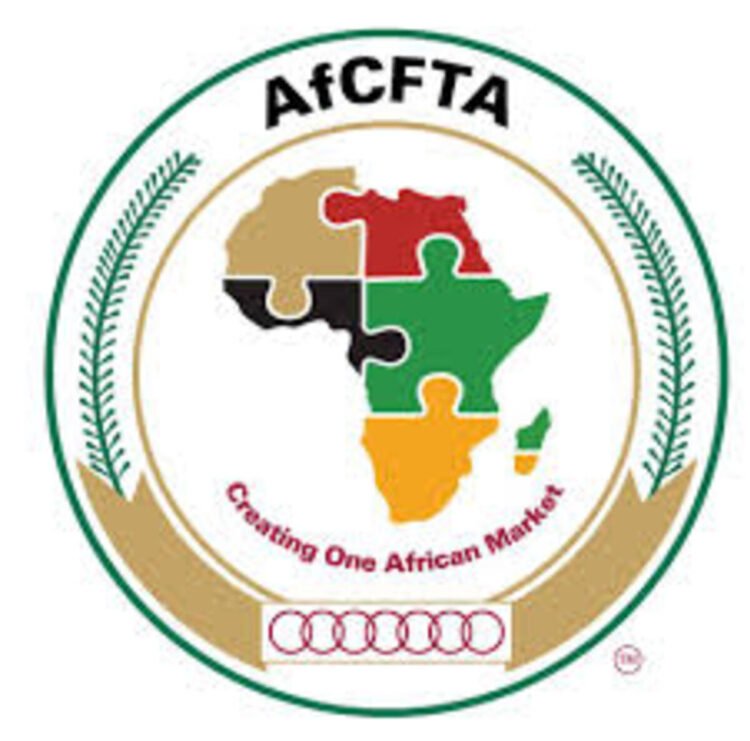The African market is decentralized, with every nation having sole management of the market insurance policies inside their nations. Whereas that is anticipated of sovereign nations, it presents an Africa and not using a unified entrance within the international market. However what if that may very well be modified? To this finish, the African Continental Free Commerce Space (AfCFTA) was created. AfCFTA is designed as a unified African market to spice up intra-African commerce and above all, current a unified Africa within the international market. However what has been the progress of this Settlement up to now? This text offers you a breakdown of the progress and challenges of AfCFTA up to now and supply attainable methods out.
Temporary Background of the African Continental Free Commerce Space (AfCFTA)
Earlier than diving deep into the progress and challenges of AfCFTA, let’s have a short overview of what the Settlement entails. The African Continental Free Commerce Space (AfCFTA) is a free commerce settlement that goals to create a single and unified market throughout Africa. Permitted by the 18th Bizarre Session of Meeting of Heads of State and Authorities, held in Addis Ababa, Ethiopia in January 2012, AfCFTA was created as a medium to unify the African market, enhance intra-African commerce, and promote the socio-economic progress of African nations.
Created as a part of the plans set in place to attain the Pan African Imaginative and prescient of “An built-in, affluent and peaceable Africa” enshrined in Agenda 2063, the Settlement goals to ascertain a single marketplace for items and companies to strengthen financial integration in Africa, selling a imaginative and prescient of a affluent and peaceable continent. Its objectives embrace making a liberalized market by means of negotiations, facilitating capital motion and investments, setting the groundwork for a Continental Customs Union, and fostering sustainable growth and gender equality. Moreover, it seeks to reinforce financial competitiveness, promote industrialization, and deal with integration challenges throughout the area.
Progress and Challenges of AfCFTA
With the signing of the settlement establishing AfCFTA on twenty first March 2018 in Kigali, Rwanda, the institution of the Settlement was set in movement and at last entered into pressure on thirtieth Might 2019. Subsequently, the launching of the Operational Devices governing commerce below the AfCFTA regime was adopted in Niamey, Niger in July 2019. The ultimate step was taken on 1st January 2021 with Buying and selling below the AfCFTA regime. With the continual operation of the programme since 2021, how most of the set objectives has the programme been in a position to obtain, what are the challenges it has confronted – is dealing with, and the way can it progress ahead in 2025?
Progress of the AfCFTA
Over time, the African Continental Free Commerce Space has made notable achievements, particularly in rising intra-African commerce. That is evident within the improve in commerce actions amongst African nations. However the progress of AfCFTA goes past a mere improve within the variety of taking part nations, the progress may be seen in funding legal guidelines, sustainability, and an increase in overseas direct investments. Listed below are some key progresses of the AfCFTA:
The Guided Commerce Initiative (GTI)
A notable progress is the institution of The Guided Commerce Initiative (GTI)in October 2022. This initiative was created to facilitate commerce amongst State Events that meet the minimal necessities for partaking in commerce below the Settlement. Created by the AfCFTA Council of Ministers’ directive of February 2022, the GTI goals to evaluate readiness within the non-public sector and consider the operational, authorized, and commerce coverage frameworks of the AfCFTA. This initiative has not simply seen a rise within the variety of taking part nations from 7 to 39, it has additionally introduced a number of small-scale companies, together with girls, nearer to benefiting from the alternatives opened on this new market. Statistically, Afrexim financial institution information famous a major progress in intra-African commerce by 3.2% in 2023, which is kudos to the initiative.
The Digital Commerce Protocol (AfCFTA DTP)
One other essential progress of the AfCFTA is the Digital Commerce Protocol. Adopted in February 2024, the Digital Commerce Protocol goals to facilitate digital commerce throughout the continent by streamlining on-line transactions and laws. In a nutshell, it may very well be considered the digital model of the AfCFTA Settlement. The AfCFTA DTP emphasizes the necessity for digital commerce facilitation, highlighting the significance of digitalizing commerce processes and documentation. It additionally caters for the African marketplaces which have grow to be extra digitalized within the wake of the COVID-19 pandemic and seeks to supply a correct regulatory framework for paperless buying and selling.
The Protocol on Ladies and Youth in Commerce
The Protocol on Ladies and Youth in Commerce is one other essential milestone of the AfCFTA. Adopted in February 2024, the Protocol particularly focuses on selling equal participation and alternatives for ladies and younger folks in commerce actions inside the AfCFTA framework, guaranteeing they’ll totally profit from the digital commerce alternatives accessible. It establishes key provisions geared toward selling equality and inclusiveness by means of affirmative motion. It additionally outlines tasks for State Events in areas equivalent to entry to finance and digital commerce. It additionally units up buildings for monitoring and cooperation, emphasizing the significance of capability constructing and safety towards harassment.
Different progresses achieved by the Settlement over time embrace the Protocols on Funding, Mental Property Rights (IPRs) and Competitors Coverage which was adopted earlier in 2023, initiatives targeted on non-public sector engagement, supporting sectors equivalent to agriculture, prescription drugs, and automotive manufacturing, and efforts to scale back transport and logistics prices and strengthen manufacturing capability by means of strategic partnerships are gaining traction. In a nutshell, the Settlement has achieved quite a few unimaginable feats over time, however it’s no gainsaying that there’s nonetheless an extended option to go. With that in thoughts, let’s dive into some key challenges of the AfCFTA and the way it can overcome them in 2025.
Challenges of the AfCFTA
Regardless of the efforts of the Settlement over time, challenges persist. Some key challenges of the Settlement lie in finalizing negotiations on guidelines of origin in key sectors like automotive and textiles, harmonizing commerce legal guidelines, and removing of obstacles limiting cross-border actions inside Africa, amongst others. Nonetheless, to higher perceive these challenges, we’ll focus on them below three headings – authorized, financial, and political challenges.
Authorized Challenges of the African Continental Free Commerce Space.
Though the AfCFTA presents unimaginable alternatives, authorized battles may very well be a bane of its existence. Worldwide companies face a number of authorized challenges below the African Continental Free Commerce Space (AfCFTA). Regardless of its objective to get rid of tariffs on most items, non-tariff obstacles like customs procedures and regulatory inconsistencies can hinder commerce. Moreover, defending mental property is sophisticated on account of various legal guidelines throughout member states.
Moreover, the AfCFTA Dispute Settlement Mechanism’s effectiveness in resolving disputes continues to be unsure. Regulatory compliance poses a problem, as corporations should adapt to completely different authorized necessities, taxation, import/export laws, and native content material necessities in every state. Different crucial points are the labour legal guidelines and competitors laws which equally range in every nation, necessitating a radical understanding of native practices.
Financial Challenges of the AfCFTA
Some financial challenges the AfCFTA should cope with embrace underdeveloped economies of the member states which are closely reliant on major commodities, protectionist insurance policies, insufficient infrastructure, and safety threats. The medieval nature of Africa’s non-public sector, particularly the Micro, Small, and Medium Enterprises (MSMEs) is one other main concern because it battles with the fixed battle of restricted entry to finance and a concentrate on survival slightly than innovation. Extra so, there may be an imminent have to regularize the differing guidelines of origin amongst regional financial communities (RECs) because it creates inconsistencies and hinders the correct integration course of.
Political Challenges of The African Continental Free Commerce Space
Hesitance from some nations to endorse the AfCFTA signifies skepticism about its advantages when weighed towards nationwide pursuits, with some perceiving this Settlement as paying homage to the beforehand rejected Financial Partnership Settlement with the EU. Extra so, the deep historic exploitation of colonialism cum exploitation of African economies contributes to this mistrust. The legacy of disrupted commerce networks and imposed financial programs has led to a pervasive lack of belief amongst African nations, which hinders the adoption and full operation of the Settlement amongst many nations. In the meantime, the porosity of borders, overseas interference, political instability and insecurity are another political obstacles that face the AfCFTA.
However past the aforementioned challenges, language obstacles, a number of currencies, poor human growth, poor state of infrastructure, and state-centric nature of integration initiatives are another core challenges that hinder the efficient execution of the AfCFTA settlement.
The Method Ahead
The AfCFTA is working tirelessly to beat these challenges, this may very well be seen within the adoption of the Protocols on Funding, Mental Property Rights (IPRs) and the Digital Commerce Protocol, that are geared toward combating the authorized issues of mental property rights and the make provision for the digitalized market respectively. Nonetheless, this isn’t sufficient.
In overcoming the authorized challenges, there’s a necessity to have interaction in diligent analysis, search authorized counsel aware of nationwide laws, and devise strategic market entry plans tailor-made to every nation’s authorized panorama. Whereas insurance policies just like the IPRs are already in place to cope with mental property rights, there’s a necessity to have interaction in a extra streamlined method that caters for all member nations and promotes adoption by the remaining nations.
Moreover, the African Union ought to concentrate on defending the pursuits of the member states, intensify efforts to rebuild the damaged belief amongst African nations and perform additional enlightenment on the goals of AfCFTA. Moreover, establishing a single forex coverage for Africa will assist get rid of the forex variety barrier and obtain the tariff discount plan. Provision to deal with trans-border crimes and insecurity among the many member states can also be essential to completely obtain the AfCFTA goals.
Last Ideas
Regardless of the extraordinary efforts of the African Continental Free Commerce Space (AfCFTA), there’s nonetheless an extended option to go in an effort to totally obtain the Settlement’s goal. Whereas the rise from 7 to 39 member states is an unimaginable feat that signifies the relentless efforts of the board, there’s a necessity to deal with the menacing challenges stopping the total realization of the Settlement. Along with the aforementioned options, institutionalizing counterpart funding amongst AU member-states for infrastructural growth would go a good distance. The AU must also encourage the lively participation of personal and civil society within the integration Settlement, amongst others. In the meantime, it is going to be a troublesome journey within the realization of the AfCFTA Settlement if the challenges recognized will not be successfully addressed.



